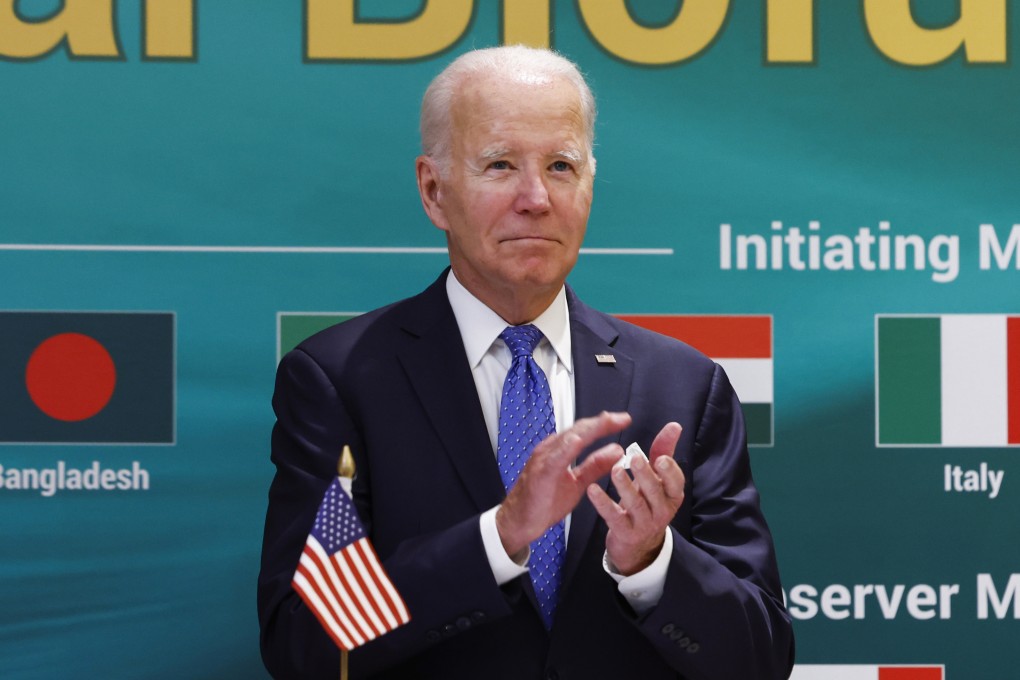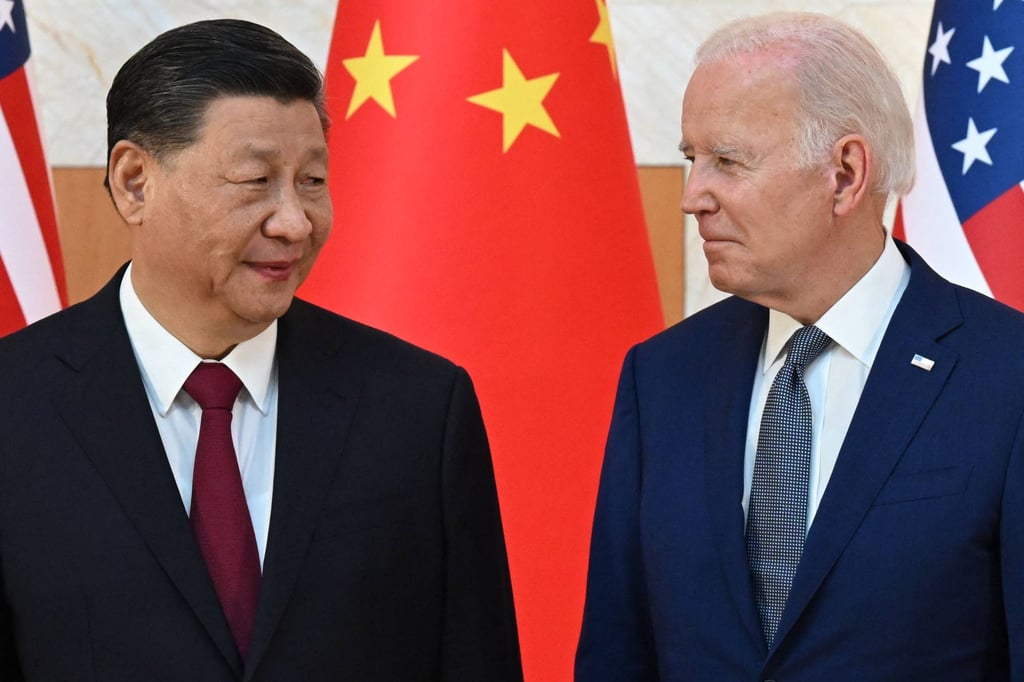US holds highest-level talks with China in months, with Biden-Li meeting at G20
- US President Joe Biden says, after leaving the G20 summit in India, that he had met China’s Premier Li Qiang there and discussed ‘stability’
- Biden insists he does not want to ‘contain’ China – ‘I just want to make sure we have a relationship … that is on the up and up, squared away’

US President Joe Biden said on Sunday that he met with Chinese Premier Li Qiang in India, his highest-level direct talks with the Chinese leadership in months, adding that he did not expect that the country’s economic difficulties would prompt it to invade Taiwan.
Biden also denied that the US was trying to box China in even as he cemented relations with Vietnam on China’s southern flank and paved the way for greater “de-risking” of vital technology supply chains, including semiconductors.
“What this trip was about – it was less about containing China. I – I don’t want to contain China,” Biden said in Hanoi, according to the White House. “I just want to make sure that we have a relationship with China that is on the up and up, squared away, everybody knows what it’s all about.”
Biden said, without going into detail, that he and Li talked about “stability” and the Southern Hemisphere. He added that the Chinese economy has struggled in part due to the international environment, real estate difficulties and domestic policy.
But all countries go through difficult patches, he added, and he did not see it as a pretext for Beijing to change the status quo of self-governing Taiwan, which Beijing considers a part of its territory.

“I don’t think it’s going to cause China to invade Taiwan,” he told the press in Hanoi. “And, matter of fact, the opposite – it probably doesn’t have the same capacity that it had before.”